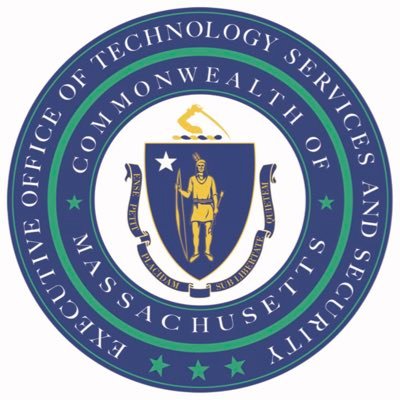- Governor Maura Healey and Lt. Governor Kim Driscoll
- Executive Office of Technology Services and Security
Media Contact
Karissa Hand, Press Secretary
Boston — Today, the Healey-Driscoll Administration unveiled the FutureTech Act, a $1.23 billion plan to modernize IT systems across secretariats through Fiscal Years 2025-2029. The bill represents significant IT capital investments to integrate the constituent experience across agencies, deliver on cybersecurity projects across the executive branch, and fund future investments in Artificial Intelligence technology, while also providing funding and technical support to secretariats, agencies, and public higher education institutions, and municipalities.
“Our administration is committed to making state government more accessible to the residents, businesses and visitors of Massachusetts – and a key way to do that is to ensure that our IT services are updated and easy to use,” said Governor Maura Healey. “We are proud to unveil the FutureTech Act, which will invest in our technology future by improving user experience, strengthening our cybersecurity, and paving the way for us to utilize up and coming technologies like AI. We thank our partners in the Legislature for their careful consideration of our proposal.”
“The FutureTech Act is the latest example of the innovative ways in which Secretary Snyder and the EOTSS team are working to make our IT services more efficient and accessible,” said Lieutenant Governor Driscoll. “From establishing the Digital Accessibility and Equity Governance Board to creating the position of Chief Information Technology Accessibility Officer to establishing the Commonwealth Digital Roadmap, we recognize the critical role that technology plays in the delivery of government services and in the lives of the people of Massachusetts.”
The current EOTSS bond authorization will be completely exhausted in FY25. To keep large, transformative IT projects on schedule, the Executive Office of Technology Services and Security (EOTSS) Office of Capital Planning, in coordination with the Executive Office for Administration and Finance (A&F), assessed the executive branch IT capital project needs for the period of FY25-29. The authorization being requested would fund the continuation of key business applications up to $350 million, enterprise cybersecurity investments of $150 million over the next five years, as well as new capital investments of $275 million.
The wide-ranging nature of the initiatives planned for funding across state government is a testament to IT’s evolution in recent decades. Information Technology has gone from being a back-office function, used to carry out policy already enacted, to being a fundamental driver of all business and policy functions that we carry out in Massachusetts. As such, this authorization invests not just in IT capital projects, but in Massachusetts’ future ability to expand what is possible through public policy and good government.
“Our state’s IT systems serve as a key driver for every secretariat, agency and business function that we carry out on behalf of the public,” said EOTSS Secretary and Commonwealth Chief Information Officer Jason Snyder. “This authorization simultaneously keeps our IT assets current and allows us to plan for our long-term cyber resilience strategy, while continuing to innovate in our business and constituent-facing applications.”
“Information technology is foundational to everything we do in state government, and essential to making sure all our agencies operate as efficiently and effectively as possible. This legislation will ensure moving into the future, as technology rapidly changes around us, that state and local government can protect itself and utilize the latest technology to deliver for businesses and residents,” said Secretary of Administration and Finance Matthew J. Gorzkowicz.
“We are thrilled to see a $12 million investment to support the Child Care Financial Assistance Modernization (CCFA) project in the bill filed today by Governor Healey,” said Amy O’Leary, Executive Director, Strategies for Children. “This capital project is critical to continue the momentum at the Department of Early Education and Care to better serve children and families. Infrastructure matters. By updating the outdated technology systems, we expect that EEC will be able to serve families more effectively and equitably and pay providers in a more timely fashion for financial stability.”
“The North Shore IT Collaborative has received more than $1 million in Compact funds over the past half decade, which in turn has unlocked several million more in local funds,” said Danvers Town Manager Steve Bartha. “These investments laid the groundwork for the regional IT operating model being led by Danvers today, and we’re confident the FutureTech Act will lay the groundwork for similar collaboratives elsewhere in the Commonwealth.”
This bill includes $1.23 billion in bond authorization to support current and future technology needs over the next five years, in addition to $400 million in authorization to spend anticipated federal funding for major Health and Human Services business application projects.
Highlights of the authorization are included below. Additional details on the bill can be found in the FutureTech Act policy brief.
-
$120 million for the Business Enterprise Systems Transformation (BEST) within the Office of the Comptroller to replace two core administrative systems used across the Executive Branch to manage financial, payroll, and human resource functions.
-
$110 million to support the Commonwealth Digital Roadmap, which seeks to standardize the user experience across state agencies with a single identity, and single sign-on that proactively points users to relevant information and services. To date, the Identity Access Management (IAM) single sign-on has amassed over 1 million residents. Building out this platform to add more applications and launching new lines of constituent communication through live chat, text functionality, and chatbot services will promote increased adoption and interoperability of the platform. In short, as the Digital Roadmap scales, it will become more impactful to users.
-
$52 million to support the continued rollout of the Employment Modernization Transformation (EMT), a project which, when complete, will provide both employers and those seeking unemployment assistance with a new portal designed to be mobile-friendly and accessible, making it easier to apply for unemployment assistance and streamline the claims process.
-
$30 million to modernize medical health records hosted by the Executive Office of Health and Human Services to eliminate workflow duplication and facilitate more efficient, secure health record management
-
$30 million for the Municipal Fiber Grant Program, a competitive grant program that supports the closing of critical gaps that exist in municipal networks. Focused on connecting municipality-owned facilities, the program assists municipalities in achieving many critical goals associated with municipal fiber networks.
-
$25 million for the Community Compact IT Grant Program, a competitive grant program aimed at driving innovation at the local level available to any municipality that is part of Community Compact Cabinet Initiative. The program supports the implementation of technology projects that harness the power of IT to drive innovation, make government more efficient, save taxpayer money, and make it easier for residents to interact and transact with their local government.
-
$25 million to support future AI projects that align with the Healey-Driscoll Administration’s priorities. Right now, Massachusetts has a chance to harness the knowledge and skills of our robust higher education and innovation-driven economy to widen our lead in the responsible development and use of AI technology in government. This bill looks forward, supporting future AI capital projects for state business and constituent experience improvement.
-
$15 million to support the Integrated Digital Data Services (IDDS) project within the Executive Office of Education (EOE). This project moves EOE data that it currently holds in many different places onto cloud servers, and creates a secure, standardized platform that provides more timely and useful educational information to educators, administrators, and the public.
-
$12 million to support the Child Care Financial Assistance (CCFA) Modernization project, which will update the business processes within CCFA to align with an updated user experience and replace or update the core technology systems managing the waitlist, application and eligibility determination, and payments. Updating the overall user experience will reduce barriers to families seeking assistance from the Commonwealth, ease administrative burdens on child care providers, and create greater operational efficiencies for the Department of Early Education and Care
-
$13 million to support the Enhanced Student Financial Aid Access project, which will simplify the financial aid discovery and application process, enhance accessibility, and facilitate higher college-going rates for Massachusetts residents, ensuring the Commonwealth fulfills the vision for having one of the most equitable and effective higher education systems in the nation. Specific benefits include a modern, user-friendly, accessible, and mobile-optimized DHE website; a Student Financial Aid Portal; system integration with my.mass.gov and IE&E; and the consolidation and streamlining of the student financial aid system.
-
$10 million to support the Integrated Eligibility and Enrollment (IE&E) program within the Executive Office of Health and Human Services (HHS). This program eliminates duplicative documentation while streamlining the application and onboarding processes for benefits administered by HHS while making residents aware of overlapping eligibility for services.
-
$3 million to support the Criminal Justice360 cross-tracking system and dashboard, empowering members of the public to view aggregated records from the Massachusetts Department of Correction (DOC) and the state’s 14 County Sheriff’s Offices.
Ensuring equitable access to state digital services for everyone remains a priority of the Healey-Driscoll administration. Through EOTSS’ leadership on both the digital roadmap and digital accessibility, all IT projects will be held to the standard of providing personal, simple, and secure user experiences that meet the needs of Massachusetts residents as they interact with their state government. This authorization supports projects that improve and integrate state government’s digital interface, with all residents in mind, with the twin priorities of improving access and efficiency.
###

